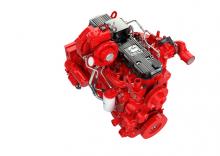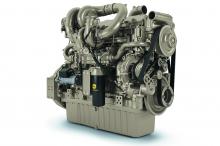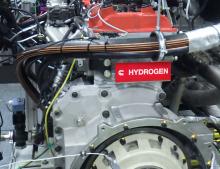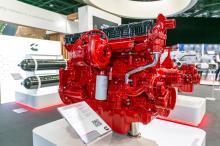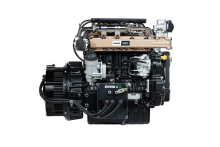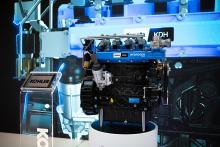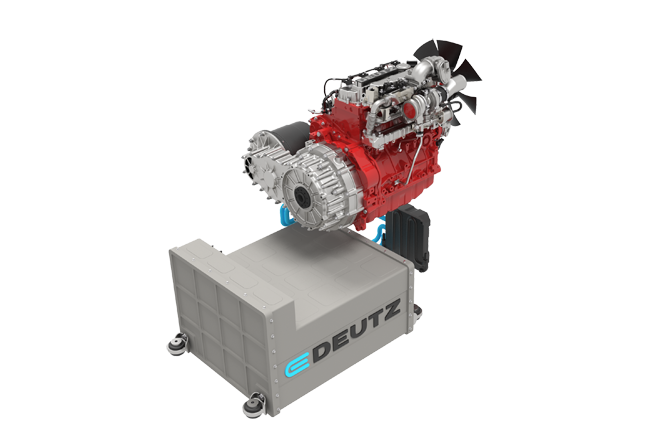
The development of cleaner motive power systems is delivering some innovative solutions for the market. The Stage V emissions requirements for diesels in Europe have resulted in engine firms offering a whole new generation of powerplants.
The latest generation of diesel engines offer far lower levels of tailpipe emissions than previous models. New engines produce just a fraction of the NOx or particulates of diesels offered just 10-15 years ago.
Additionally, firms are offering a range of low emission solutions for the drivelines market, in addition to the new diesels. These suppliers are keen to give their customers choices for power units that best suit applications and market needs.
Electric motor systems are available for some market segments, particularly suiting duties in smaller rental machines for the construction sector such as hand-controlled compaction tools or mini excavators.
At the same time, gas-fuelled engine options are also being made available by an increasing number of suppliers. Proven technology is merging with advanced systems to offer low emission, internal combustion engines for a wide range of duties, including construction applications.
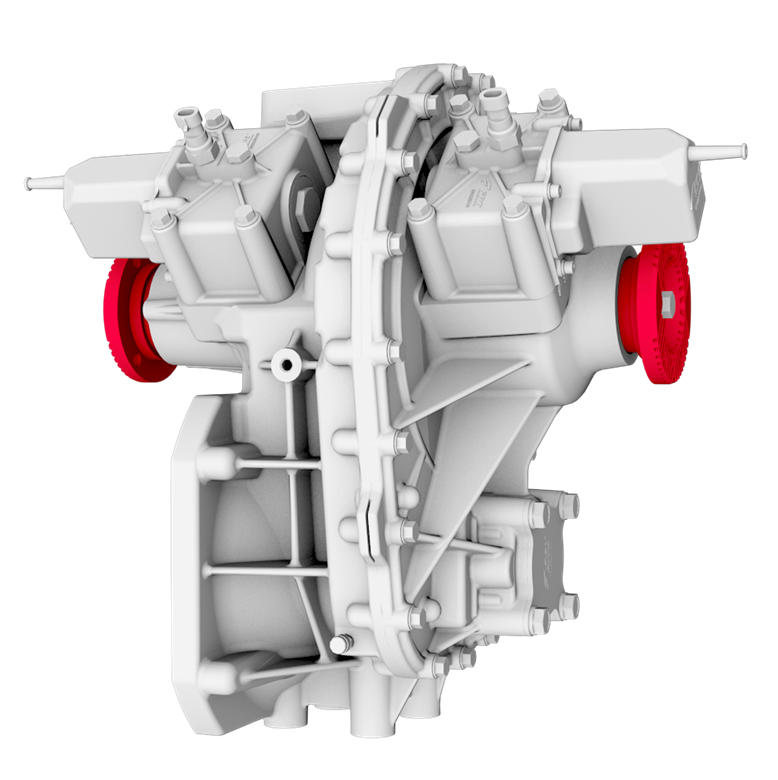
Hybrid power solutions are also becoming more widely available, with lower fuel consumption in addition to reduced emissions.
Cummins has announced it prototype, all-electric mini excavator, which is based on a
Deutz has been working with
Volvo CE has announced it will be offering electric power machines for its compact equipment segment, with the technology being developed by sister firm Volvo Penta.
Other construction machinery firms that have recently introduced electric powered compact equipment include
Various firms are now offering new engines with gas fuels, such as LPG, propane or even hydrogen.
Deutz now has LPG variants of its three- cylinder TCD2.2 and four-cylinder TCD 2.9 engines, called the G 2.2 and G2.9 and with power ranges of 22-56kW and 30-75kW respectively. The firm also has a hydrogen-fuelled variant of its TCD 7.8 engine.
From
Similarly,
FPT Industrial has developed its new Cursor X engine with sister firm,
New hybrid solutions from
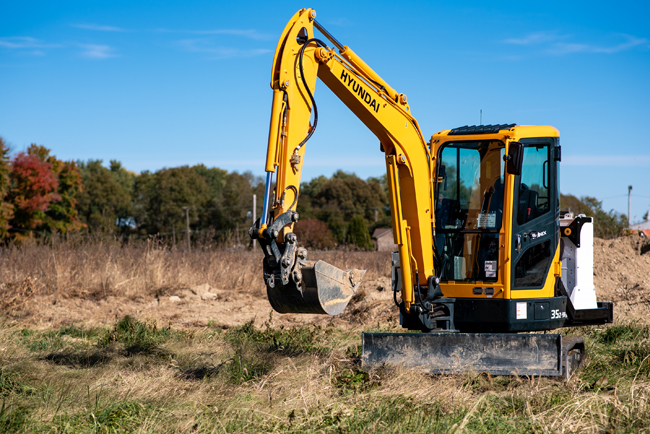
FPT Industrial offers new solutions for different needs; the E-Axle, the Transfer Box and a mild hybrid system. The Compact E-Axle transfers power and torque to the wheels through the gear unit. Said to be versatile, this modular system can be used on various machine types, delivering up to 250kW and with a choice of front, rear and all-wheel drive. Its Transfer Box system adds an electric power unit to the original engine and is designed for machines carrying out a mixed duties. The mild hybrid powertrain architecture system benefits from an E-Flywheel and the E-Turbocharger. Both of these systems can be used to recover energy that can then be reused.
Kohler’s hybrid solution is compliant with Stage V standards. Called K-HEM (Kohler Hybrid Energy Module), the unit generates power using a KDW 1003 18kW diesel engine and a 48V electric motor. The combined unit is expected to offer more than 30kW without the need for exhaust gas aftertreatment systems. It can also operate as a generator for energy accumulation systems. The electric motor works as a generator and auxiliary power source. It recovers energy during braking, and when the machine has low energy demands. Energy stored in the battery is available when the machine requires peak power.
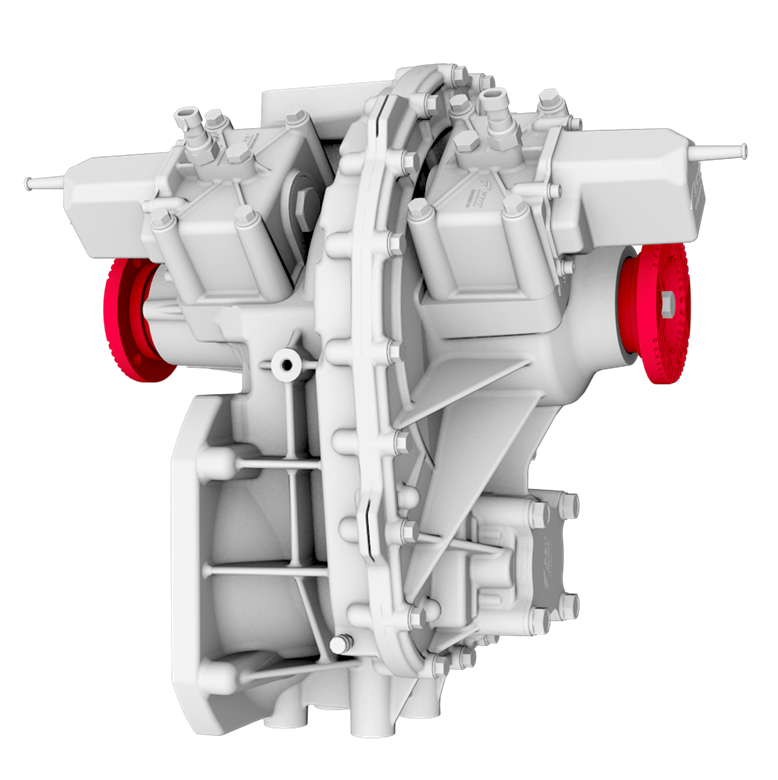
Meanwhile, Kubota has further developed its micro-hybrid prototype engine, which was previously seen in prototype form.
Optimising power delivery is crucial for efficient driveline solutions and Bonfiglioli is developing an advanced solution. The firm says that its system will boost working efficiency for an array of off-highway machine types. The company recently bought the licence to further develop and manufacture the continuously variable transmissions (CVT) from CVTcorp. Using CVTs can make major savings in fuel consumption as they allow engines to operate at optimum output.
Diesel engine firms are continuing to develop new engines too, although these are cleaner running than previous generation units.



